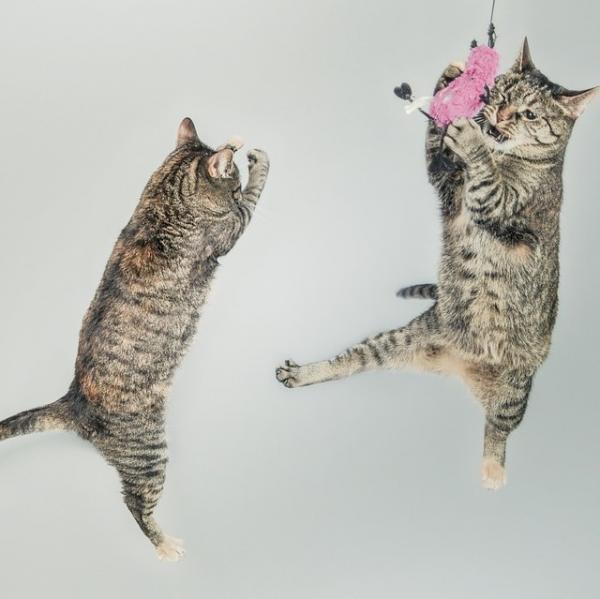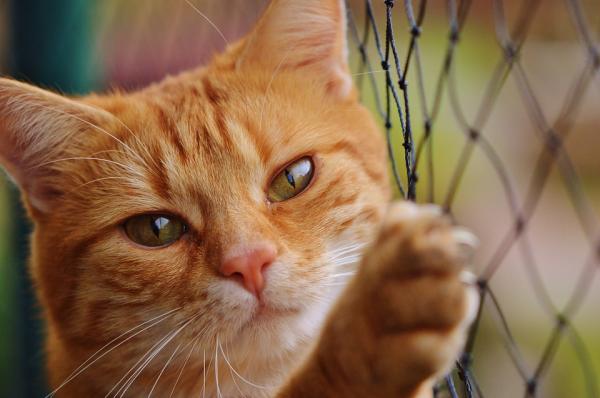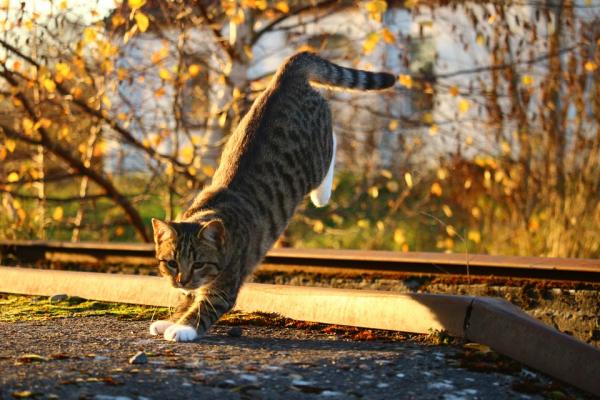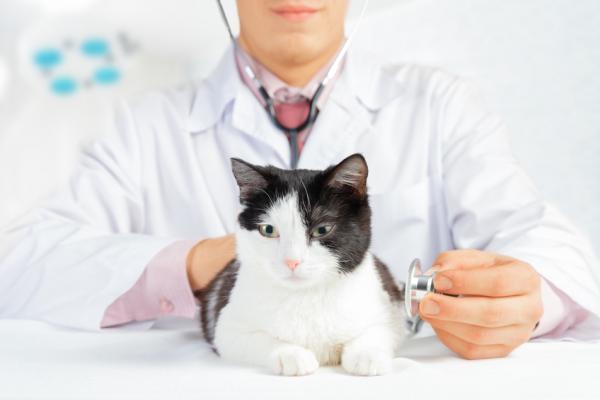Do cats always fall on their feet?

The cat is an animal that has always lived accompanied by various myths and ancient beliefs. Some unfounded, such as thinking that black cats bring bad luck, and others that have some scientific support, as in this case the ability to fall on their feet.
Do you want to know more about this phenomenon? If you have ever asked yourself if you really cats always fall on their feet or if it’s a legend in we will tell you the truth about this popular saying. Keep reading!
Myth or Reality?
Ensuring that cats always fall on their feet is a belief that has caused them to think that they have seven lives. But nevertheless, it is not true that the cat always falls on its feetAnd even when you do this, it does not mean that you are saved from injuries, in some very serious cases.
Although on a number of occasions the cat is capable of falling from considerable heights without suffering damage, it does not mean that you should allow your feline access to windows, balconies and other places that lack proper protection, as an accident can cost you life.

The process, why do they fall on their feet?
Before a fall to the void, two things play a fundamental role so that the cat can straighten its body and fall on its feet: hearing and flexibility.
As it happens with the rest of the mammals, in the inner ear of the cat is the vestibular system, in charge of controlling the balance. Within that system is a liquid that moves in the ear, indicating to the cat that it has lost the center of gravity.
In this way, when the cat falls, the first thing it seeks to straighten is the head and neck. Then, the physical law on the conservation of angular movement is applied, which indicates that a body that rotates on its axis generates resistance and changes its speed.
Through this principle it can be explained that the cat, when it falls, is able to perform a 180 degree turn and straighten his entire spine, while retracting his front legs and stretching the hind legs; All this thanks to the flexibility of your body. Once this is done, you are already looking at the ground. Afterwards, he will pick up the legs and arch the column, in a position that has earned him the nickname of parachutist. With this movement it seeks to cushion the blow of the fall and, in many cases, achieves it.
However, the speed of the fall is not reduced, so if it is a lot of height it is likely that, although it has fallen from the foot, suffer terrible damage to the legs and spine, and even die.
The reflex that is generated in the ear takes a thousandth of a second to activate, but the cat needs other vital seconds to be able to perform all the necessary turns that allow it to fall on its feet. If the distance of the fall is too short, it will not succeed; If it is too long, it may be successful and it may reach the ground unharmed, or it may turn but it will still cause a lot of damage. In any case, it is about a useful but not infallible reflex.

What if the cat falls badly? What should we do?
The cats are excellent climbers as well as extremely curious animals, for that reason, it is very common to try to explore new places such as the balcony or some windows of your home.
We must understand that for them these small incursions are a source of enrichment and fun, so we should not avoid it, quite the opposite: incorporate a mesh or network security to cover your balcony is an excellent way to make your cat happy and to enjoy the outdoors.
However, if we do not have it, it can happen that our cat falls from a considerable height, something that if repeated on several occasions, it is called “the parachutist cat syndrome”. In any case, if our cat has fallen and seems badly wounded, we will have to evaluate its situation and apply first aid to go to the vet as soon as possible.

If you want to read more articles similar to Do cats always fall on their feet?, we recommend that you enter in our Curiosities section of the animal world.


